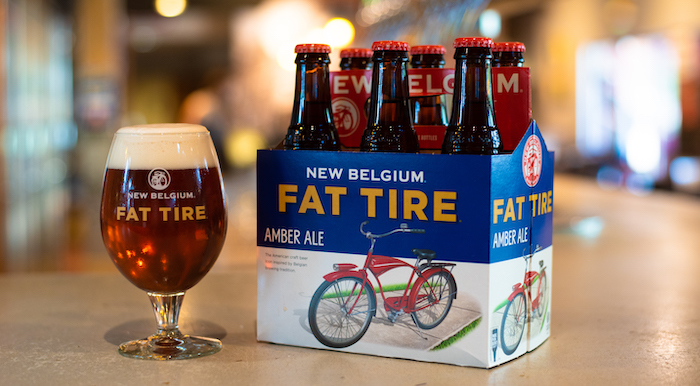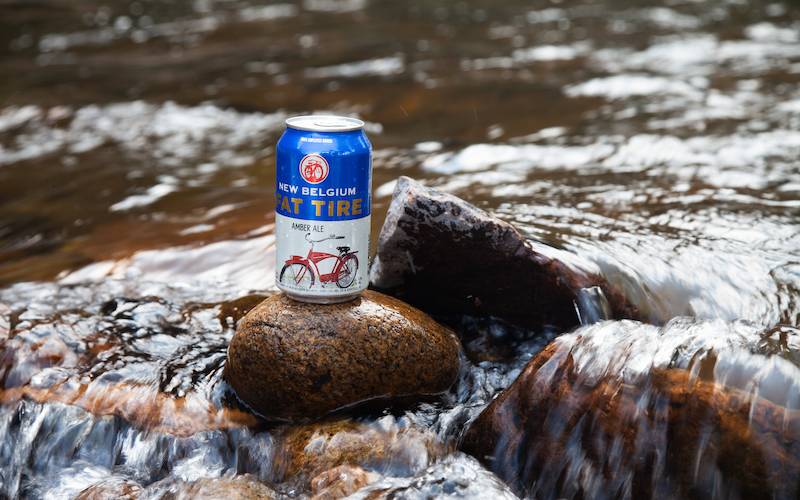Innovation & Tech Today spoke to Katie Wallace, assistant director of sustainability, and Chris Keogan, senior plant engineer, of New Belgium Brewing Co. in Fort Collins, Colorado to learn how cutting-edge technologies allow them to produce new and innovative products. And, with craft beer heavily dependent on agriculture, we discuss how sustainable practices help drive their company.
Innovation & Tech Today: How was New Belgium founded with the ideas of sustainable brewing in mind?
Katie Wallace: One of our founders was a social worker and the other was an electrical engineer. Jeff, the electrical engineer, thought the greatest success is to make something as efficient as possible with the fewest resources. From the time they were in the basement there were a lot of technologies that helped to save energy and water resources. For one example, on the initial brew kettle he had a trash can that captured the steam over the top. Inside of that was a copper coil that had incoming water passing through it and cutting water for the next batch, so it took less energy to boil in the mash tank. This just speaks to the philosophy that New Belgium was founded upon.
Chris Keogan: He had some really cool innovations in that home. Like he had windows that were on actuators and he had shade systems. He also had passive solar as well, which was both heating water and taking energy to the home. He was controlling his usage and he had a net zero home back in 2009. That’s what Katie is saying; he started small but got pretty complicated pretty quickly. We’ve taken that model and brought it to the next level.

I&T Today: How do Jeff’s personal sustainability principles play a part in both the brewing process and the construction of the entire built structure of New Belgium?
CK: The fundamental maxim I use is that if you can measure it, you can control it. It’s indicative of the process that we have in the brewery repeated hundreds of times: achieving small things over and over that at the end of the day produces beer. I use a program called ArchestrA to monitor data inputs and outputs. So if I look at this as a loop that controls temperature, then on my flow meter I’m able to see how much water I used steeping yesterday and how much I have used so far today. So by taking small bits of data, you aggregate information and are pushed into good decision making. Jeff said he wanted this place to be as energy efficient as possible. But I think you will always get your highest energy efficiency when you have your lowest possible loss.
I&T Today: What do you consider to be good figures for efficient resource usage?
CK: A good number would be around .98 gallons of water per liter of beer and some really good breweries are less than .92. But that doesn’t take into account all of the water for the life of the raw materials.
KW: We consume an average of 24 gallons of water over the lifetime of a bottle of Fat Tire. But 98 percent of that is on the barley field to just grow and process the plant. So we are actually quite efficient. And I believe we are one of the only craft breweries that has done that in-depth of a water footprint study.
CK: What we’re trying to do is to be as energy efficient and water efficient as possible by being miserable about the amount of beer we lose.
I&T Today: Do you feel that software like this and different programs that allow you to track data in the system play a large part in your ability to be as efficient as possible?
KW: One thing Chris and his team are doing is looking at all of the systems and saying, “If we build it from the ground up, what would that programming look like?” Right now it seems like what we’re getting towards is a nice mixture of manual attention to detail and animation.
CK: I think there’s a massive correlation between most automated and most efficient in all cases. It is really, really hard to be super efficient in manual systems. It costs money to automate it, it costs money to have automatic valves, but there are particular studies that say if a certain valve gets moved by hand “X” amount of times, it’s worth automating.
I&T Today: How do you dispose of the waste produced by the brewing process?
KW: The vast majority of the waste is spent on grain. In Fort Collins we go through about three semi loads of spent grain every 24 hours of brewing. Then we sell it to a cattle farmer. Now, people ask, “What about the methane gas produced by cows?” Greenhouse gas studies that we did a few years ago came back and said the best thing to do with the grain is send it to a cattle farmer because you’re offsetting the greenhouse gas impact of farming virgin ingredients for feed, which can have a high number of greenhouse gas emissions associated. In a perfect world, we don’t have cows eating grain. But in this world we’re offsetting virgin feed that’s being grown.
I&T Today: Does your newer brewery in Asheville, NC have similar sustainability principles as the brewery in Fort Collins?
KW: Definitely. Everything that we learned and excelled at here we implemented in Asheville. Our founders really cared about urban revitalization and developing on land that’s already been developed in order to bring it back to life. Asheville was a pretty extreme site. It was a designated “Brownfield” by the EPA. There was an illegal dump and stream underground with old tires and waste running into the river. So we worked with a local group to implement a number of stormwater management best practices and bioswales which helped repair the creek, filter the water, and put it back into the river. All in all, we have succeeded with both of our breweries in terms of land revitalization.











